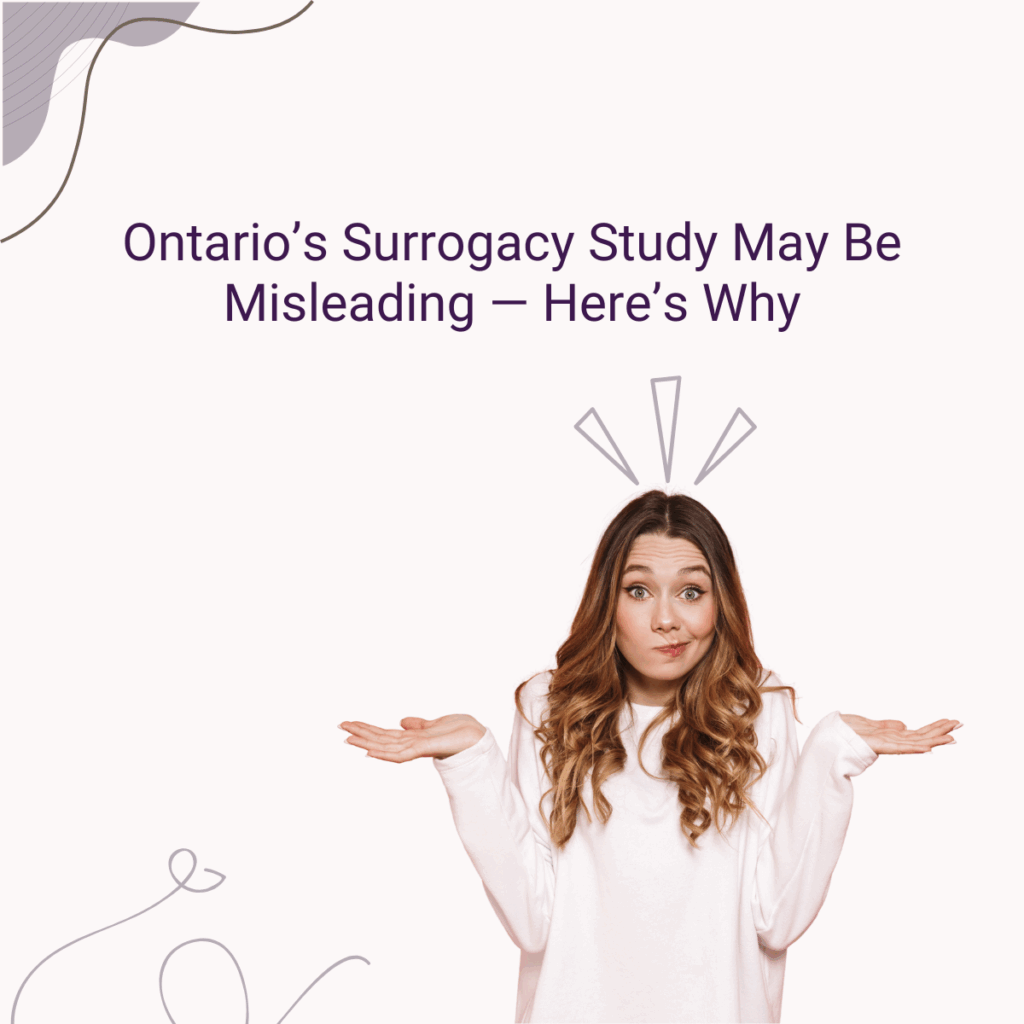Are Gestational Carriers Really at Higher Risk for Mental Health Issues? Looking Closer at the Ontario Study.
Special thanks to Michael Johnson-Ellis, Co-founder of TwoDads UK & My Surrogacy Journey, for bringing this study to my attention.
A recent JAMA Network Open study from Ontario, Canada (2025), made headlines by suggesting that gestational carriers are at greater risk of developing mental health issues compared to women who conceive naturally or through IVF.
On its face, that sounds alarming. But when we dig into the details, the story becomes far less clear—and in many ways, potentially misleading.
The Study in Brief
Researchers analyzed 767,406 births in Ontario between 2012 and 2021, excluding anyone with a previously documented mental illness. The breakdown was:
-
Unassisted conception – 748,732 births (97.6%)
-
IVF (without surrogacy) – 17,916 births (2.3%)
-
Gestational carriers (surrogates) – 758 births (0.1%)
They reported new-onset mental illness per 100 person-years:
-
Unassisted: 5.2
-
IVF: 5.0
-
Gestational carriers: 6.9
From this, the authors concluded that surrogates were 43% more likely than women with unassisted pregnancies, and 29% more likely than IVF patients, to be diagnosed with new-onset mental illness.
Why This Conclusion Is Fragile
-
Gestational carriers accounted for just 758 cases out of more than 767,000 births—just 0.1%. In such a small group, even 10–15 cases being miscoded, misdiagnosed, or missed could erase the reported difference—or even reverse it. Findings this sensitive to small shifts can’t support sweeping claims.
-
A participant was counted as having new-onset mental illness if she had:
-
-
Two or more outpatient visits billed under mental health codes, or
-
One emergency/hospital visit with a mental health diagnosis.
-
But surrogates are required to attend at least one mental health evaluation before being approved, and many continue counseling during pregnancy. These visits are often billed under mental health codes even when no disorder exists. Just two routine check-ins could make a surrogate “a case,” inflating numbers without reflecting actual illness.
-
Surrogates normally have more prenatal visits, contractual check-ins, and specialist monitoring. More contact = more chances for a diagnosis to be recorded. That doesn’t mean more illness, just more measurement.
-
Surrogacy involves complex legal obligations, emotionally sensitive relationships with intended parents, and, in Ontario’s altruistic system, the absence of compensation despite significant commitment. These stressors weren’t separated from medical risks.
-
A 25-year-old surrogate may carry an embryo created from a 42-year-old egg, which carries higher risks (miscarriage, complications, stress). Similarly, if surrogates themselves are older, that increases the risk of conditions like gestational diabetes or hypertension, both linked to psychological strain. These age factors weren’t examined.
-
If the goal was to study the association between gestational carriage and mental illness, why restrict it to Ontario, a province with so few surrogates? In fact, 99.9% of the study’s births were not surrogates. A broader dataset across provinces or internationally could have improved reliability.
The Bigger Picture
What this study may really reflect is measurement bias. Surrogates are more likely to be screened, monitored, and coded under mental health billing practices than the general pregnant population. That doesn’t mean they are inherently less healthy.
The Takeaway
The Ontario study highlights something important: all pregnant women deserve strong, accessible mental health support. Gestational carriers are no exception.
But the headline claim that “gestational carriers are at higher risk for mental illness” should be read with caution. The difference was small, the surrogate group tiny, and the results highly sensitive to coding practices and baseline differences.
When surrogates are only 0.1% of the data, it’s risky to draw sweeping conclusions. Mental health isn’t a “surrogacy issue”, it’s a pregnancy issue, and one that deserves attention across the board.


